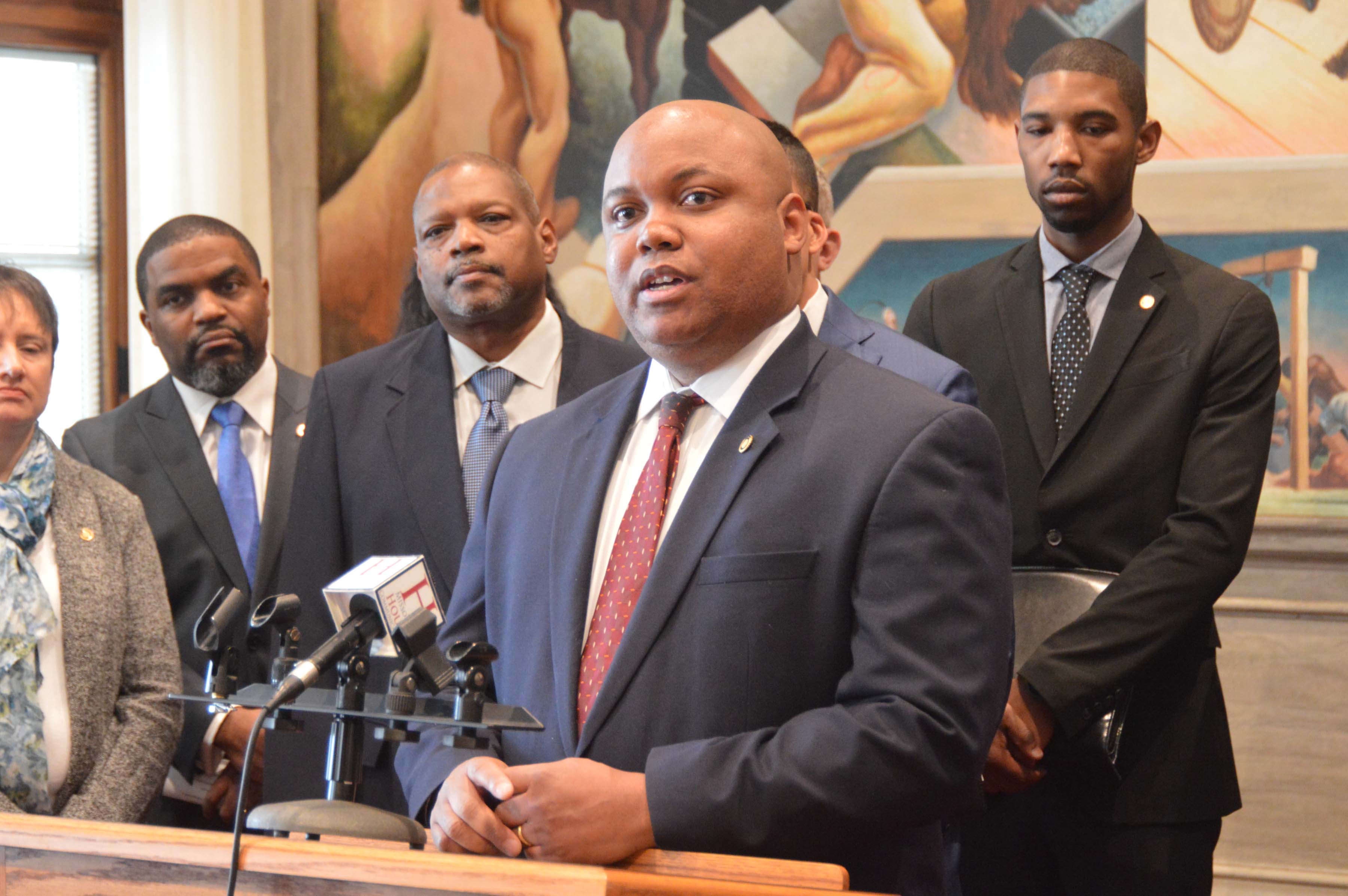The House Speaker has said criminal justice reform is a priority in the remaining weeks of the session, and a bill containing several proposed reforms has just been compiled. It has the backing of a man made famous by President Donald Trump earlier this year.
House Committee Bill 2, also being called the Missouri First Step Act, was assembled by the House Special Committee on Criminal Justice. It is a compilation of several individual bills, some of which have already been passed by the House.
Trump featured Matthew Charles during his State of the Union Address. Charles is the first person released from prison under the federal First Step Act, a federal reform bill signed into law by Trump in December.
In 1996 Charles was sentenced to 35 years in prison for selling crack cocaine. In prison he turned his life around and earned an early release in 2016. Though he was living a productive life, a court decision overturned his release and sent him back to prison until he was released under the First Step Act.
He’s excited about a provision in HCB 2 that would let judges ignore mandatory minimum sentences for non-violent crimes in Missouri.
The stand-alone mandatory minimum sentences legislation, House Bill 113 sponsored by Representative Cody Smith (R-Carthage), has been sent to the Senate and awaits a committee hearing.
HCB 2 will be carried by the committee’s chairman, Representative Shamed Dogan (R-Ballwin), who has been a proponent of criminal justice reform during his five years in the House.
HCB 2 would apply the state’s law restricting the use of restraints on pregnant offenders to county or city jails. That bars the use of restraints on a woman in the third trimester of pregnancy and through 48-hours after delivery while they’re being transported except in extraordinary circumstances, which must be documented and reviewed.
Representative Mary Elizabeth Coleman (R-Arnold) sponsors that legislation (House Bill 1122). She said it’s about the safety of those offenders, but also of their babies.
“It’s making sure that when women are in labor, when women are in advanced stages of pregnancy, and when they have really no risk of harm that we’re really treating people as people and that we’re being appropriate as well,” said Coleman. “It’s not about trying to be lax on people who have committed crimes. They’re paying their costs, but a pregnant woman is very vulnerable and we want to make sure that she and her child are delivered safely.”
Another piece of HCB 2 coming from a bill sponsored by Coleman (House Bill 920) would require that feminine hygiene products are available to women being held in the state’s prisons or on state charges in county and city jails.
Representative Cheri Toalson Reisch (R-Hallsville) sponsored House Bill 189, to allow people convicted of felonies to work in certain businesses that sell alcohol or lottery tickets, such as grocery or convenience stores. That is also included in HCB 2.
“Where I’m from in Boone County we have 1.5-percent unemployment. This is the second lowest in the country. We cannot find enough employees. We would like to put these felons to work,” said Toalson Reisch. “We need them to avoid recidivism and make better lives for themselves and their families.”
Two of the other pieces of HCB 2 would restrict the use of drug and alcohol testing by privately operated probation supervisors (House Bill 80 – Justin Hill, R-Lake St. Louis); and would keep courts from putting people in jail for failing to pay the costs associated with prior jail time (House Bill 192 – Bruce DeGroot, R-Chesterfield). Both of those stand-alone bills have been sent to the Senate for its consideration.
HCB 2 includes language to allow for the early parole of certain inmates over the age of 65 (House Bill 352, Tom Hannegan, R-St. Charles); to stop the confiscation of assets from a person who hasn’t been convicted of a crime (House Bill 444, Dogan); and to prohibit discriminatory policing (House Bill 484, Dogan).
HCB 2 awaits a hearing by a House committee before it can be sent to the full chamber for debate.
Earlier stories on two of the bills that are part of HCB 2:
House votes to prevent jailing of Missourians for failing to pay jail bills (HB 192)





